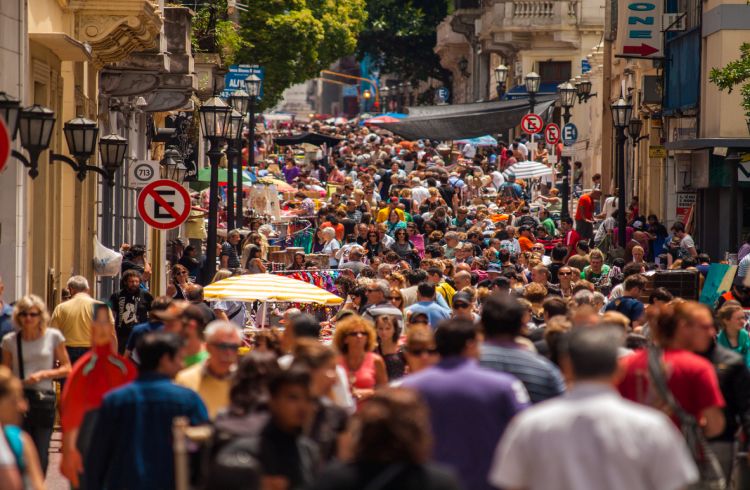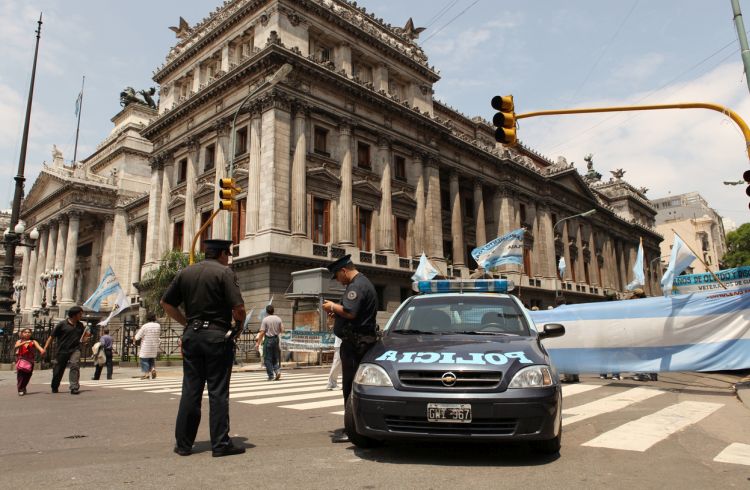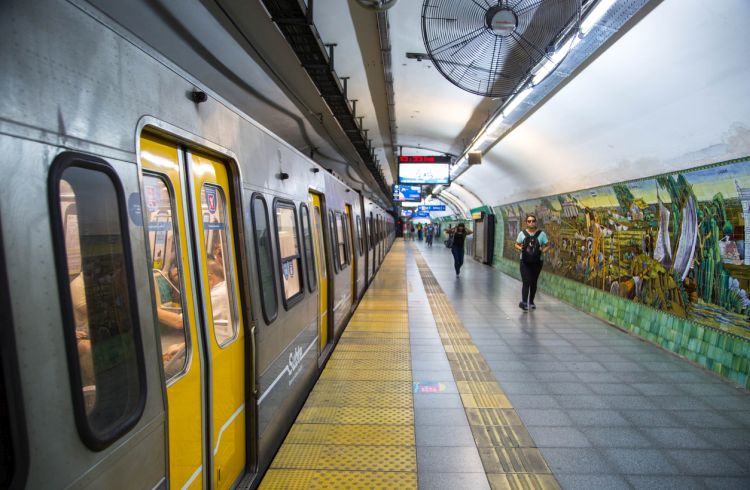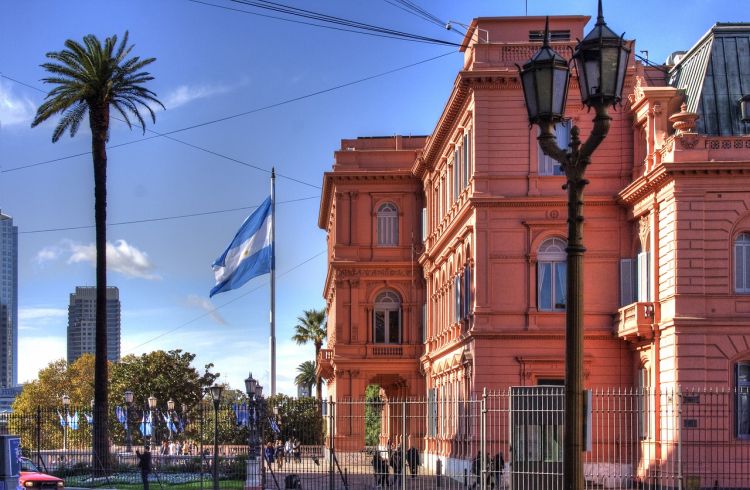Is Argentina Safe? Stay Secure in Buenos Aires and Beyond
Just how safe are travelers in Argentina? Learn about the things you need to know, from road trip safety to crime hot spots and scams.
 Photo © iStock/holgs
Photo © iStock/holgs
Argentina is generally a safe country for travelers to explore. By exercising a bit of common sense, you can ensure a safe and enjoyable visit to one of Latin America's most vibrant countries. Understanding local safety statistics can enhance your overall security during your trip.
There are a few parts of the country that are considered unsafe for visitors. Before you go, check your government travel advisory for the most up to date information, follow the advice of local authorities to avoid trouble, and beware of political demonstrations which are common in major cities.
Where to get help if you need it
The emergency number in Argentina is 911.
Buenos Aires: The Argentine police operate a 24-hour English-language helpline for visitors (dial 101). You can also contact the Comisaria del Turista (Tourist Police Station) at Av. Corrientes 436, via toll-free number 0800 999 5000, or directly at 4346 5748.
Mendoza: The Tourist Police, located at San Martin 1143, can be reached at 0261 4132135.
- Which cities are safe for travelers?
- Crime against travelers
- Pickpockets in Argentina
- Political demonstrations
- Are taxis safe?
- Road trip safety tips for Argentina
- Is luggage theft a concern?
Which cities in Argentina are safe for travelers?
Is Buenos Aires safe?
Argentina's capital, Buenos Aires, is not entirely free from crime. General safety advice applies here – wherever you go, avoid talking on your phone on the street, keep valuable items in your pockets, and don’t wear expensive jewelry (especially necklaces, as these are easy to rip off). Always wear your purse or backpack on your front. In particular, be alert for petty crime around public transport hubs.
Exercise caution in tourist areas such as La Boca, San Telmo, downtown, and Retiro bus terminal.
Avoid shady neighborhoods like Villa Lugano and Villa Riachuelo, especially after dark. Steer clear of public parks after sunset. Stick to the main tourist precinct in La Boca even during the day. While poorer areas often have higher crime rates, you should still remain alert in the affluent suburbs and neighborhoods like Palermo, Retiro, Belgrano, and Nunez.
Thieves often target passports and other valuables. Avoid confrontations with thieves if this does happen to you, as they may use force if met with resistance. Handing over cash and valuables promptly when confronted can prevent escalation. After all, your belongings are not worth your life.
How safe is Cordoba?
Córdoba, Argentina's second-largest city, is generally considered safe for travelers, but like elsewhere, practice normal safety precautions. Be extra cautious in the downtown area at night.
Safety in Mendoza
Be alert around transport hubs, especially Mendoza’s bus terminal. It's common for distraction theft to occur in General San Martin Park, which is a popular spot for visitors to go.
Is Rosario safe?
Many government travel advisories recommend exercising a higher degree of caution in the city of Rosario, and it’s for good reason.
The city of Rosario is located on a drug-trafficking route, and unfortunately there has been an increase in drug-related gang violence in the city. If you do travel through this city, be extra cautious and aware of suspicious situations.
Staying safe in smaller towns
Small towns in the countryside are generally safe and secure, but you should use common sense and never leave your items unattended.
In the tourist towns of El Chalten and El Clafate in Patagonaia, travelers will feel incredibly safe. Down here crime is much lower, especially during the coldest months of the year when visitor numbers are minimal. That being said, if you’re staying in a hostel, keep your bags locked and secured when you go out for long day hikes. Other travelers can’t always be trusted.
Crimes against travelers in Argentina
Here are the most common types of petty crime and their frequent locations:
- Distraction theft: Thieves use various distractions, like pretending to help clean off spilled tomato sauce or mustard, to rob tourists. Always be wary of overly helpful strangers.
- Bar scams: Avoid being enticed into bars (wiskerias) with offers of shopping discounts or free shows. Once inside, you might be forced to pay exorbitant amounts for drinks.
Pickpockets in Argentina
- Public transport and hubs: Pickpockets are common on public transport and around transport hubs. They may grab bags from between your feet or snatch valuables while cruising past on a skateboard or motorcycle.
- Electronics: Expensive electronics like smartphones and iPads are prime targets. Avoid using them in public or leaving them out on tabletops or bus seats where they can be easily grabbed.
Political demonstrations
Political demonstrations in Argentina are common.
In recent years, economic instability and political unrest have led to an increase in the frequency and size of demonstrations. Political demonstrations are relatively common in Buenos Aires and other major cities. These protests often take place around government buildings, including Plaza de Mayo, Casa Rosada (the presidential office), and the National Congress.
Demonstrations can range from peaceful marches to more volatile protests. Issues often addressed include economic conditions, labor disputes, social policies, and government decisions.
Avoid large gatherings and demonstrations to minimize the risk of getting caught in potentially volatile situations. In some cases, protests can escalate, leading to clashes between demonstrators and police.
Monitor local news for recent trends in protests for up-to-date information on the current political climate before you go.
Are taxis safe in Argentina?
Book taxis in advance and use radio taxis or a remise (private car with driver), identifiable by company logos on the rear passenger doors.
Beware of counterfeiters, including taxi drivers, who may swap your good pesos for fake ones under the guise of helping you check your money.
Road trip safety tips for Argentina
If you choose to hire a car and take a road trip through Argentina, there are a few travel safety tips to keep in mind.
- Rent a car from a reputable company. Make sure it is in good condition and check for a spare tire, jack, and emergency kit.
- Carjackings, particularly at traffic lights, do happen. Always keep your windows closed and doors locked when driving in major cities.
- Driving in rural areas in northern Argentina, especially in the Province of Misiones near the Paraguay and Brazil borders, can be dangerous due to smuggling and other criminal activities,. Road conditions may be poorer and less patrolled. Seek local advice or avoid these areas altogether.
- When you’re planning your road trip route, stick to well-travelled routes and main highways.
- Keep valuables out of sight and lock your car when parked. Be cautious at gas stations and rest stops.
- Follow local traffic laws and speed limits. Be aware that driving habits may differ from what you are used to.
- Gas stations can be sparse in remote areas. Refuel whenever you have the opportunity.
- Roads can be long and desolate if you’re driving in Patagonia. Weather conditions can change rapidly, so check forecasts and be prepared for high winds and cold temperatures.
- If you’re driving in the Andes, mountain roads can be narrow and winding. Drive cautiously and be prepared for altitude changes.
- Be prepared for occasional police checkpoints. Carry your driver’s license, passport, and car rental papers, and comply with officers’ requests.
Is luggage theft a concern for travelers?
Unattended purses, backpacks, laptops, and luggage are frequently targeted. Thieves are quick and can distract you for just a few seconds to steal valuables.
Systematic theft from checked baggage at Buenos Aires airports is a known issue, despite ongoing efforts to address it. Always keep valuables and important documents in your carry-on and keep bags locked.
Traveling to Argentina soon? Learn how travel insurance could help you on your trip.
By staying informed about common scams, crime hotspots, and safety practices, you can enjoy a secure and memorable trip to Argentina.
Related articles
Simple and flexible travel insurance
You can buy at home or while traveling, and claim online from anywhere in the world. With 150+ adventure activities covered and 24/7 emergency assistance.
Get a quote


No Comments